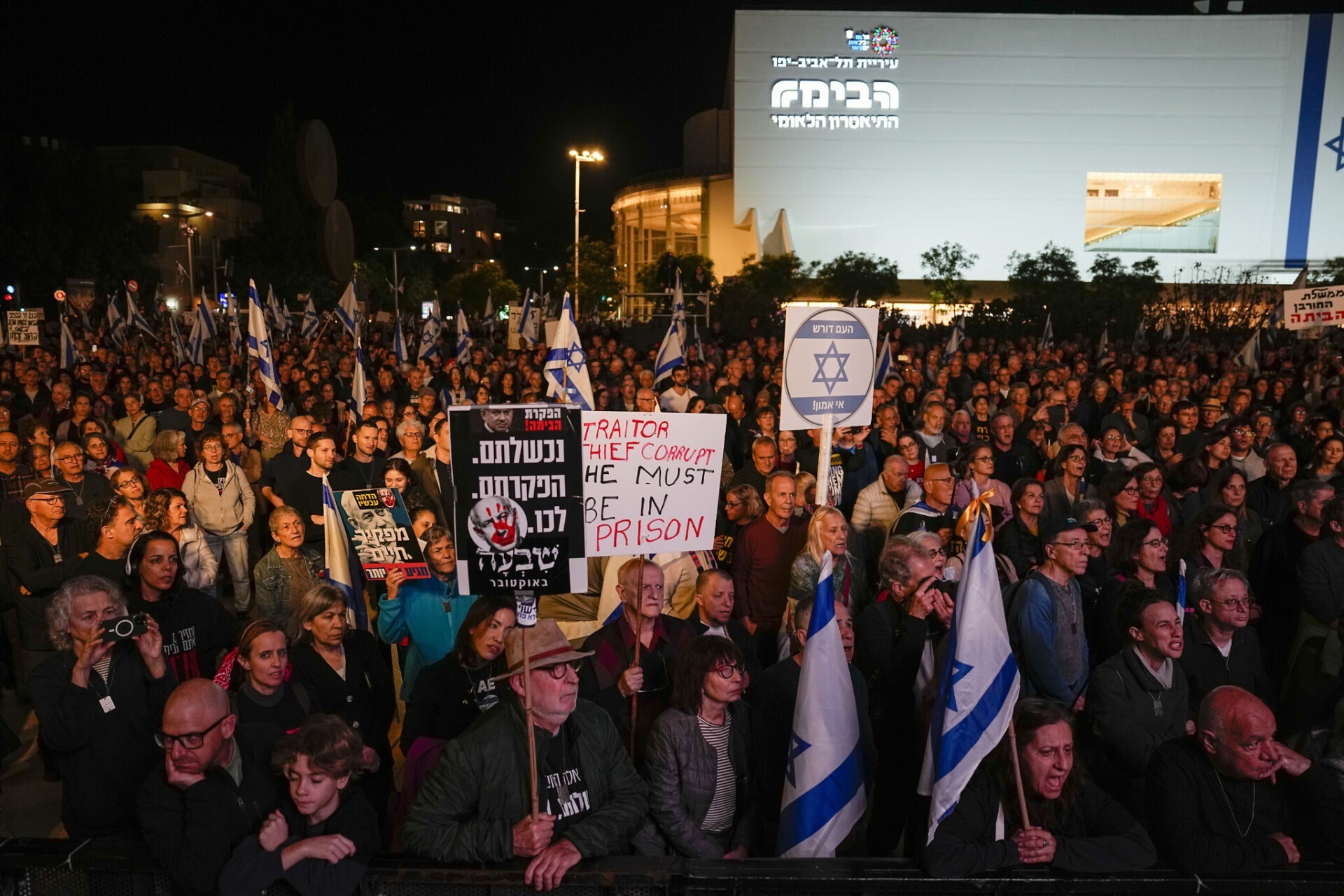In a remarkable and somewhat paradoxical turn of events, Tel Aviv has witnessed its largest anti-war demonstration to date, with hundreds of thousands of Jewish protesters taking to the streets. The protesters, rallying against the ongoing conflict, have been preemptively labeled as “anti-Semitic” by none other than Israeli Prime Minister Benjamin Netanyahu and other prominent figures within the Israeli government.
The protest, which saw an unprecedented turnout, was a powerful display of dissent within Israel. Participants carried banners calling for peace and an end to the violence, emphasizing the humanitarian toll of the conflict. “We are here because we believe in peace,” said one demonstrator. “It is our duty to speak out against war and to advocate for a better future.”
Ironically, as is often the case with anti-war movements, the protesters quickly found themselves branded as “anti-Semitic” by Netanyahu and others who equate any opposition to Israeli military actions with hatred of Jewish people. This labeling has drawn widespread ridicule, given the demonstrators’ obvious Jewish heritage and their location within Israel.
“It’s absurd to call Jewish people protesting for peace in their own country ‘anti-Semitic,'” said a spokesperson for the organizing group. “We are here because we love our country and want to see an end to unnecessary bloodshed.”
Social media has been abuzz with reactions to the protests and the subsequent accusations. Hashtags like #JewishAndAntiWar and #PeaceNotAntiSemitism have trended as people express their support for the demonstrators and their cause. One viral tweet read, “Only in a world this upside-down can Jewish people protesting war in Israel be called anti-Semitic.”
The protest has also sparked a wider debate about the conflation of anti-war sentiments with anti-Semitism. Critics argue that such accusations are used to silence legitimate dissent and to stifle discussions about the morality and consequences of war. “It’s a convenient way to shut down debate,” said a political analyst. “But it’s also incredibly damaging and reductive.”
Despite the backlash, the protesters remain undeterred. “We will continue to speak out against war,” said one organizer. “Being Jewish doesn’t mean supporting every action of the Israeli government. We have the right to advocate for peace.”
As the protest in Tel Aviv demonstrates, the anti-war movement within Israel is growing, and its members are determined to make their voices heard. Whether this will lead to a broader shift in public opinion or policy remains to be seen, but for now, the message is clear: advocating for peace is not synonymous with anti-Semitism, even in the heart of Israel.

